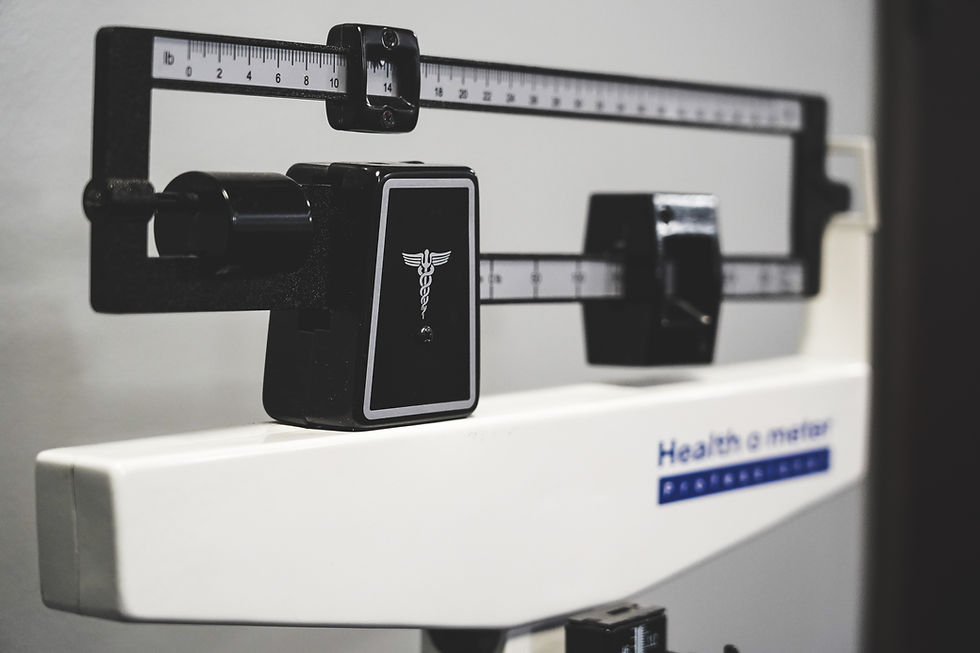4 ways the body is impacted by the stress of mental health conditions
- MRPY Professional Services

- Mar 29, 2023
- 3 min read
Science has spoken: It’s no secret the body and mind are connected. When we experience a mental health condition, it often can affect our physical health, too. Depression and post-traumatic stress disorder (PTSD) are two of the most frequent mental health challenges that Veterans face.
According to the Department of Veterans Affairs (VA) Office of Research and Development, an estimated 1 out of every 3 Veterans visiting primary care clinics exhibits depression symptoms. Serious symptoms of depression affect 1 in 5 Veterans, and 1 in 8 to 10 have major depression that requires treatment with psychotherapy or antidepressants.
Knowing how mental health affects the body can help Veterans assess symptoms and move forward in healing. You might qualify for additional VA disability benefits. Here are 4 ways the body is impacted by the stress of mental health conditions:
Sleep problems
“Waking up on the wrong side of the bed” is more than a cliché saying. Mental health and sleep directly affect each other – and Veterans are especially at risk for compromised sleep. Anxiety and PTSD, specifically, can lead to sleep disturbances. According to the Sleep Foundation, racing thoughts brought on by anxiety can lead to a state of hyperarousal that prevents slumber. When people grow accustomed to struggling with falling asleep, that only adds onto anticipatory anxiety.

One 2021 study from the Journal of Clinical Sleep Medicine revealed that over 93% of Veterans with PTSD also had insomnia. This state of alertness can prevent sleep, or cause disturbing nightmares – a difficult cycle that can be really tough to break out of.
Chronic disease
Long-term stress of mental health conditions over time can continuously wear down the body, contributing to chronic disease. The National Institute of Mental Health states that people experiencing depression are at higher rates of risk for chronic diseases, such as cardiovascular disease, diabetes, stroke, and Alzheimer's. Other mental health conditions, such as PTSD and anxiety, also can contribute to the development of these diseases.
Harmful and risky behaviors
Mental health conditions can put people at risk for substance use disorder (SUD). This treatable mental health condition affects a person’s ability to control their usage of drugs, alcohol, or medication – either legal or illegal substances. Other mental health conditions, such as PTSD, put individuals at a much higher risk for SUD. Individuals experiencing PTSD are 14 times more likely to develop addictive and risky behaviors with substances, putting both their mental and physical health in further danger.
Weakened immune system
Studies have shown how mental health conditions can weaken our immune system. Veterans who struggle with their mental health may become more susceptible to illness and infection, as the stress can wear down the body’s natural defense system. Stress hormones, such as adrenaline and cortisol, can diminish our immune system when their release is prolonged amid periods of mental stress.

How to get help
While the physical implications of mental health can be scary and intimidating, the good news is that treatment is available to both prevent further issues and heal existing conditions. We’re here to support you in getting the help you need to live well, both mentally and physically.
Interested in becoming your own claims expert? We can help. Sign up for our free 60-minute educational webinar on how to simplify your VA disability claims here. For more support, sign up for our course "Master Service Connection: A Course To Maximize Your VA Disability Rating FAST!".
Get a Nexus Letter written by a medical expert for your claim via our services page, or sign up for an expert chart review here.




Comments